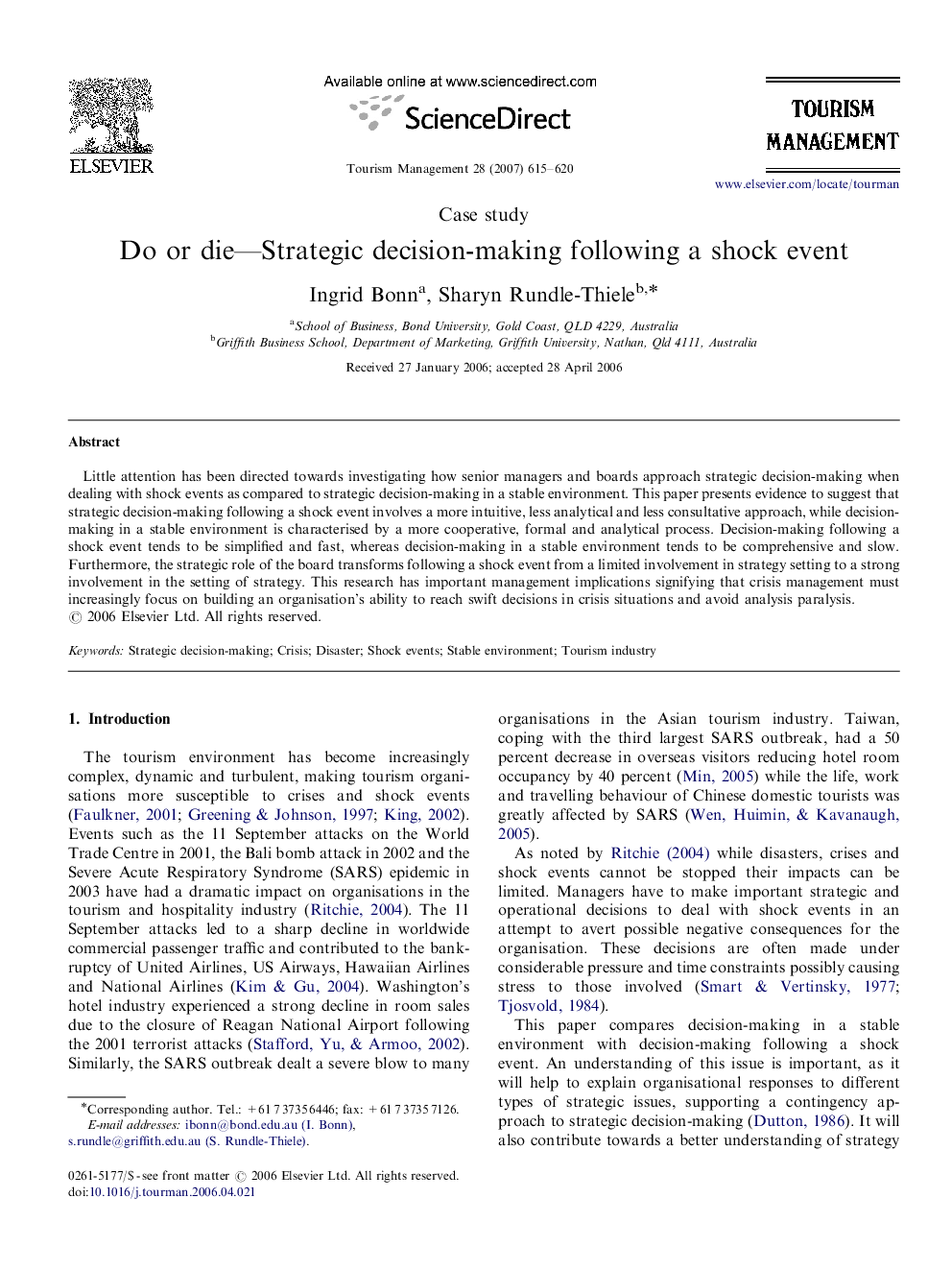| Article ID | Journal | Published Year | Pages | File Type |
|---|---|---|---|---|
| 1012970 | Tourism Management | 2007 | 6 Pages |
Little attention has been directed towards investigating how senior managers and boards approach strategic decision-making when dealing with shock events as compared to strategic decision-making in a stable environment. This paper presents evidence to suggest that strategic decision-making following a shock event involves a more intuitive, less analytical and less consultative approach, while decision-making in a stable environment is characterised by a more cooperative, formal and analytical process. Decision-making following a shock event tends to be simplified and fast, whereas decision-making in a stable environment tends to be comprehensive and slow. Furthermore, the strategic role of the board transforms following a shock event from a limited involvement in strategy setting to a strong involvement in the setting of strategy. This research has important management implications signifying that crisis management must increasingly focus on building an organisation's ability to reach swift decisions in crisis situations and avoid analysis paralysis.
